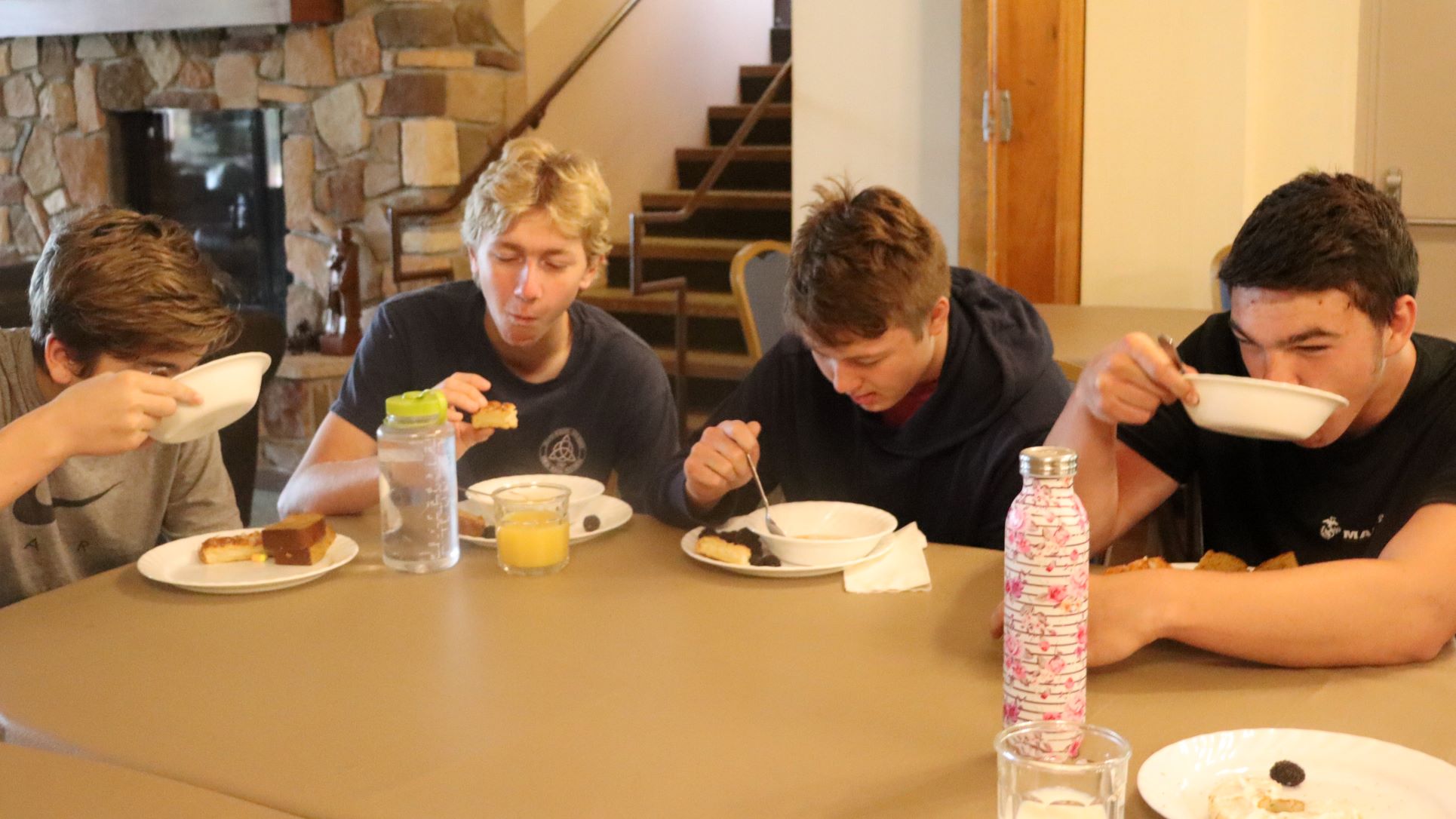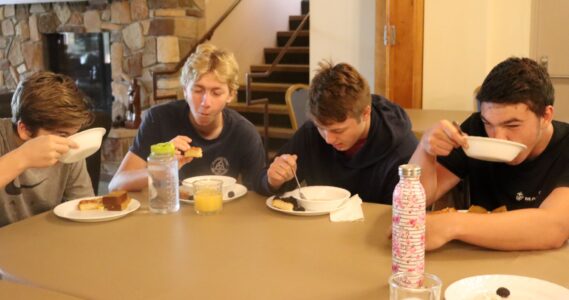Explaining LEAD #5 with Jerome Meeds
It is no secret. Our teens are lonely. A media-saturated society facilitates isolation, and the Covid-19 pandemic accentuates and extends it. Teens feel pressures about every social and moral issue known to man and question their belonging and adequacy in the world.
Enter DLITE – Dunrovin Leadership Intensive Training Experience. Centered on four pillars, DLITE seeks to help each teen grow in personal development, faith, community, and servant leadership.
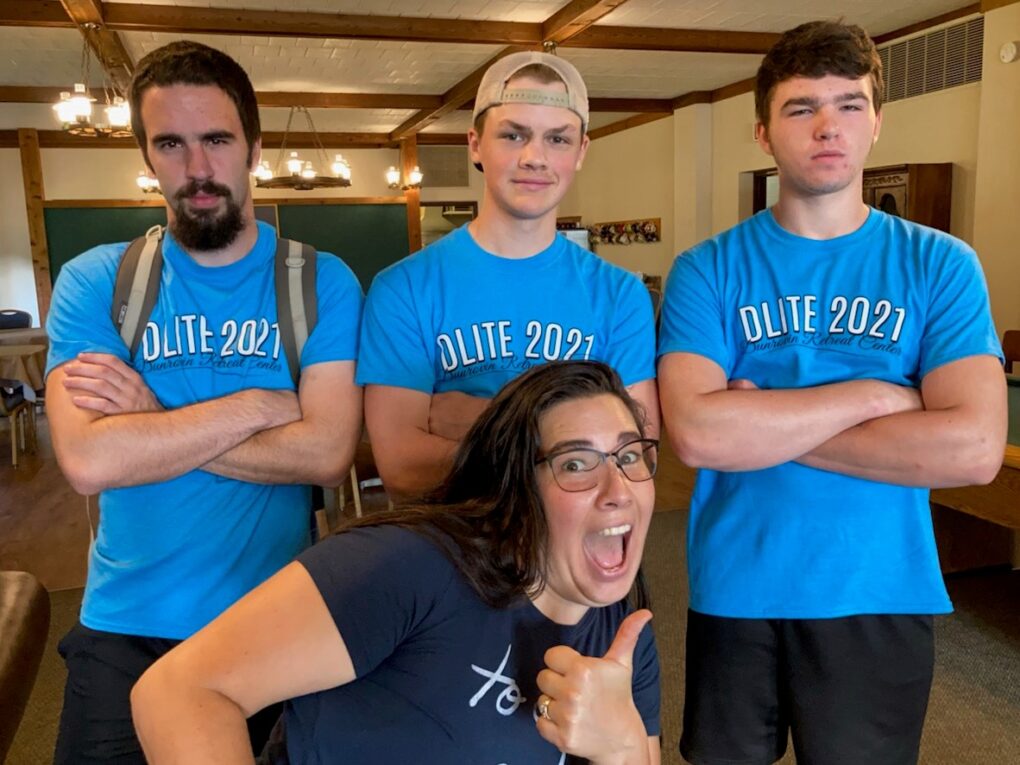
“It was the best week of my life,” said a high school junior after his first week of DLITE training in 2021. Youth need to be together and have a significant capacity to grow as they minister to each other and together.
“I learned that working as a team can be very effective. People sometimes need to be helped, but sometimes I need help.” – DLITE participant
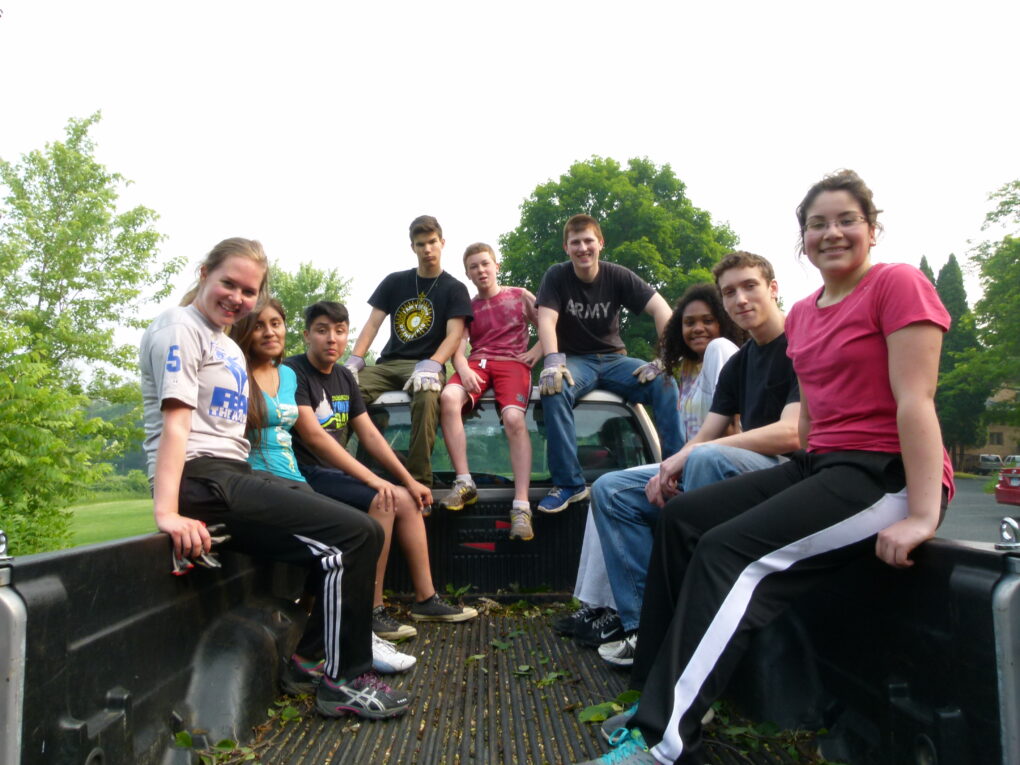
Brother Álvaro Rodríguez Echeverría, FSC, highlighted the ability of youth to touch other teens when he spoke in Madrid, Spain:
“We should give priority to experiences where hands touch poverty and human suffering….Young [people] are the ones who without hesitation can sympathize with kids who are undergoing tough times.”
Brother Alvaro Rodriguez Echeveerria, FSC (then Superior General of the De La Salle Christian Brothers), 2012
Teens need each other. The design of DLITE extreme teambuilding activities breaks down internal experiences of isolation, inadequacy, and relational poverty. Activities challenge students toward spiritual, mental, emotional, and physical maturation. One activity, not unique to DLITE but valuable with people of all ages, is the Rose-Bud-Thorn reflection.
Stop, reflect, remember, and give thanks.
Rose-Bud-Thorn, used with all of Dunrovin’s youth programs, interrupts the busyness of life. DLITE uses the activity as a tool to help teens grow in self-awareness, community, and gratitude.
Basically a mini-Ignatian reflection exercise, Rose-Bud-Thorn may be used during a time of prayer or assist in any nurturing discussion. Rose-Bud-Thorn powerfully forms the last thoughts shared before youth go to sleep for the night or on the final retreat day before students go home.
Rose
- What was the highlight of the day or a strength, something good that happened today or recently?
- This is a moment to share what makes the students happy, hopeful, or grateful.
- Example: My rose is realizing that my mom loves me.
Thorn
- What was something that sort of stuck or poked today or recently? Something didn’t go as hoped, drags down, or may feel negative.
- The thorn moment shares inward struggles where students need to turn to God and others for help or hope.
- Examples: My thorn is that my computer is not working, and I don’t have money to buy a new one.
Bud
- What are you looking forward to tomorrow or in the future? Where is the potential or opportunity in life?
- Ask students to look inside to find where they hope God will work.
- The bud moment is a time for students to share what they are looking forward to, whether or not it will surely happen.
- Examples: My bud is seeing my dog when I get home.
If used to facilitate processing of a specific activity, the questions might look like this:
- Rose – what was the highlight of this activity?
- Thorn – what was hard about the activity?
- Bud – what can you take away from this activity?
At the end, take time to pray in gratitude to God for all these things. Develop an attitude of gratitude.
Some elements for a time of safe sharing include freedom and listening. Students must not be pressured to share and can pass if desired. Listen well. Give no judgment. Students should not laugh at each other unless a student intends to be funny. Value each sharing. Walk alongside the hopes, hurts, and desires of the students.
“I have grown in my faith by being more open with God.” – DLITE participant
During his address to youth in 1992, St. Pope John Paul II exhorted young people:
“Become the first apostles of the young…here is your great task!”
Pope John Paul II, World Youth Day, Local Celebration, “Go into all the world and preach the Gospel.” April 12, 1992
It takes courage for teens to open up to others. Dunrovin young adult program counselors set up a safe, nonjudgmental environment. Students encounter an environment where trying something new is encouraged, regardless of the outcome, and failure is part of the learning process. Be free to do well or to make a mistake! This trusting environment is not one that most teens are used to, especially among peers.
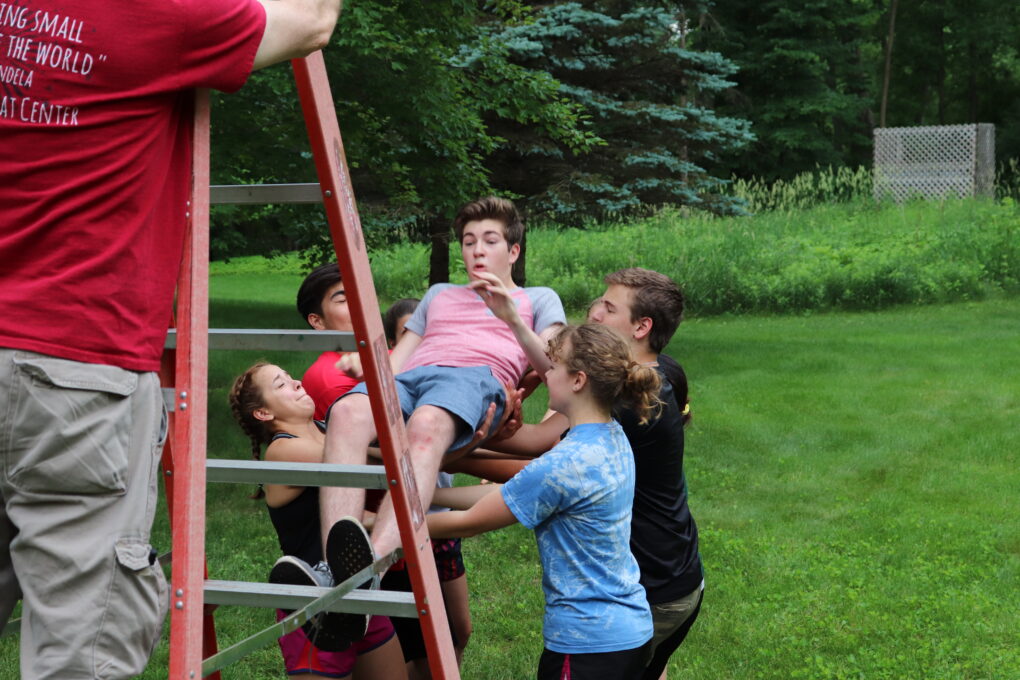
Students learn about supportive relationships. They recognize healthy friendship, free from drama and pretending. They give each other a glimpse of what life can be like when willing to let down the guard and trust. They leave DLITE with newfound confidence. Teens receive hope.

